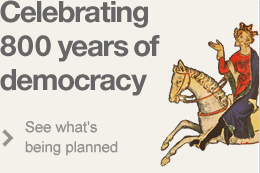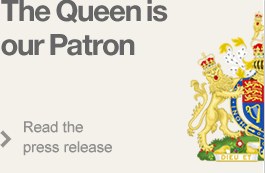The Bigods were a major East Anglian landowning family, based at Framlingham (Suffolk), who had held the earldom of Norfolk since its grant to Hugh Bigod in 1140 or 1141. Roger (c. 1143-1221) was the only son of this Hugh by his first wife, Juliana, sister of Aubrey de Vere, earl of Oxford.
Roger’s father had left him a tangled inheritance. He had repudiated his son’s mother and had subsequently married Gundreda, daughter of Roger, earl of Warwick, by whom he had two more sons, Hugh and William, for whom their mother, after their father’s death in 1176 or 1177, sought to make provision out of the family inheritance at their elder half-brother’s expense. Henry II, savouring the opportunity to gain his revenge on Hugh for his involvement in the rebellion against him in 1173-4, deliberately left the case unresolved, refused to allow the son to succeed to the father’s earldom, and confiscated the lands in dispute between the heir and the half-blood. Roger was only able to vindicate his rights on Richard I’s accession in 1189, when the earldom was granted to him on payment of the relatively low relief of one thousand marks (£666).
Thereafter Roger enjoyed a long and honourable career in royal service. He served Richard as a justice in eyre (i.e. itinerant judge) and as a baron of the exchequer. In John’s reign he took part in the defence of Normandy, and after 1206 served on campaigns in Poitou and within the British Isles. In 1215, however, he went over to the opposition, joining the rebel barons in their muster at Stamford. In part, his involvement on the rebel arose in response to the financial pressures exerted on him by the king. The scutage – money due in lieu of personal military service – that the earl owed from his many estates was so substantial that in 1211 he was driven to striking a deal with the exchequer to pay 2000 marks (£1333) for respite during his lifetime from demands for arrears and for liability to a reduced sum in future. Roger had various other grievances against the king. One at least related to litigation. In 1207, when a legal action had been brought against him in the royal courts, he objected to the chosen jurors on grounds of their likely bias, but his arguments had been ignored by the king, who ordered the case to proceed.
Roger was joined in his rebellion by his son and heir Hugh, who was already of full age, and the two stood in the forefront of the opposition in East Anglia. In March 1216 the king succeeded in taking the family’s main castle at Framlingham and put pressure on the earl by pardoning those of his followers whom he captured, while condemning those who refused to submit to forfeiture of their lands. Roger and Hugh did not return to their allegiance until after the general peace settlement agreed with Henry III’s Minority government at Kingston-on-Thames in September 1217. By April of the following year the earl had received back all his lands and titles, but, by now over 70, he was in semi-retirement and he died three years later in 1221. He was succeeded as earl by his son, another of the Twenty Five, who in 1206 or 1207 had married Matilda, daughter of the future Regent, William Marshal, earl of Pembroke. The son died in February 1225.
Framlingham castle, as we see it today, is largely the product of a rebuilding carried out by Earl Roger in Richard the Lionheart’s reign, following the partial demolition of the fabric by Henry II in 1174. It consists of a cluster of baileys set on a low eminence above a flooded mere. The inner bailey, which constituted its central space, was innovative in taking the form of an irregular-shaped curtain wall punctuated at intervals by open-backed towers, dispensing with the great tower or keep customary in Norman castles.
By Professor Nigel Saul, Royal Holloway, University of London.
Featured Article
The early settlers in the United States took with them copies of the Magna Carta. One undertaking given by King John in that Charter was as follows: No freeman shall be arrested or imprisoned or disseised or outlawed or exiled or in...
Read on...Recent Articles
- Magna Carta's American Adventure
- 800th anniversary of Bristol...
- Bristol 800 concert and...
- Emancipation and Magna Carta
- Terrorism and Tolerance -...
- Magna Carta
- Magna Carta Benches mark...
- ABA Magna Carta Memorial...
Stay updated
If you would like to keep informed about the work of the Magna Carta Trust and our partners, please sign up to the newsletter below.
Become a Supporter
There are a number of significant supporter opportunities. Register your interest early to ensure the widest range of options.
Find out more




